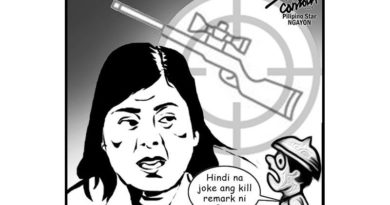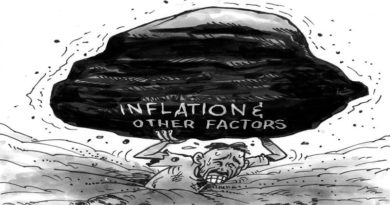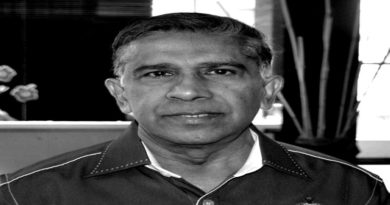EDITORIAL: Sad day for human rights

The decision of two human rights commissioners, namely Tuenjai Deetes and Angkhana Neelapaijit, to resign from the independent agency after a long period of compromise is a heavy blow to the commission and many underprivileged people, especially those marginalised by the state.
Ms Tuenjai, a former activist and senator, and Ms Angkhana, both prominent rights advocates, cited certain regulations imposed by NHRC chairman What Tingsamit that crippled their performance, and internal rifts plaguing the prestigious agency, as the reasons for their departure. This has resulted in a vacuum in the seven-member commission.
———

The remaining members of the What-led commission number less than half what the law requires, while the selection of new commissioners has been delayed. Only two new commissioners, Pornprapai Kanchanarin, a former ambassador based in The Hague, and Pittikan Sitthidej, a former director-general of the Rights and Liberties Protection Department, were named by the defunct National Legislative Assembly (NLA), shortly before it ended its tenure. But they cannot take office; the commission is now waiting for the remaining five to be named by the Senate.
The What-led commission was supposed to end its tenure in 2017 when the NHRC Act under the 2017 charter took effect. But the delay in the installment of the new commissioners has allowed the incumbent commission to continue to perform more or less as a caretaker. Two commissioners, Surachate Satiniramai and Chartchai Sutthiklom resigned in 2017 and June of this year respectively. The resignations of Ms Tuenjai and Ms Angkhana, which reduce the commission’s remaining members to three, poses questions about its eligibility. But Mr What has refused to step back, instead adamantly insisting he will ask the presidents of the Supreme Court and Supreme Administrative Court to appoint replacements.
At a press conference yesterday, Mr What conceded he had to revise some regulations as he believed the old ones seemed to give the commissioners “an excessive mandate in their work”. The fact is that Mr What, a law graduate from Chulalongkorn University, has been groomed as a state legal official and judge all his working life.
———

With such a background, there is a tendency for him to interpret laws by the letter rather than weighing the social context. Such a mindset hardly benefits the underprivileged since numerous laws in this country infringe on the rights of local people.
The breakup of the NHRC is unfortunate. The commission is one of the legacies left by the 1997 Constitution that was touted as the people’s charter aiming to create a just society with the establishment of several mechanisms to give the “little people” more of a voice.
But there is little hope for the new commission since there is evidence that the selection process of the two commissioners carried out last December by the military-installed NLA was problematic as it was tainted by heavy lobbying aimed at ditching all the candidates representing the people’s sector.
The failed candidates took the matter to the Constitutional Court.
The commission really needs to have people with diverse experience, not just bureaucrats. But given the background of the Senate, with a large number being retired officials and men in uniform, it’s unlikely non-bureaucrats will get a place on the new commission.
If that is the case, and powerful elements continue to interfere in the process, the chances that the new commission can fulfil its duties are nil.
EDITORIAL
BANGKOK POST EDITORIAL COLUMN
———










